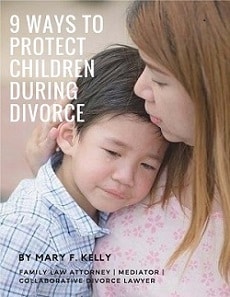Divorce is a life-changing event, and it can involve numerous people: children, therapists, accountants, family members, and attorneys.
Your attorney is a crucial player in the divorce process, and since this may be your first time working with an attorney, it’s important to choose one who will represent you well. Most people’s knowledge about attorneys is based on friends’ or relatives’ experiences–whether good or bad–and popular culture, where they are often portrayed as demanding, controlling, expensive, arrogant, and not interested in their clients’ problems.
Not all lawyers fit that bill, of course. Choose an attorney who represents you and your interests, understands your needs and goals, and is affordable and available when you need her/him. Here are some guidelines:
References
The best reference is a trusted family member or friend who knows an attorney, or another attorney who doesn’t practice family law but knows attorneys in that field. Other sources: Colleagues at work or church or community groups, local bar associations, advertising networks (telephone, internet, etc.). However, like other advertised services, the cheapest is not always the best.
Initial Conference or Consultation
Most attorneys offer an initial conference or consultation. Come prepared to the initial meeting; have pertinent facts available, know your finances or bring tax returns and other financial papers to the consultation.
Trust your Instincts
You may interview an attorney who was highly recommended by your best friend, but your instincts say “this attorney is not for me.” First impressions count. Don’t disregard your feelings. If it is not working at the initial contact, it will not get better.
Understand the Attorney-Client Relationship
The attorney-client relationship is unique: Be sure you understand it. The attorney maintains a confidential relationship with you (attorney-client privilege) and that privilege protects your communications with the attorney. This gives you, the client, protection and confidentiality when you confide difficult and personal information to your attorney. He/she may not share that information unless you agreed to have it shared. The communications that are privileged and confidential are those between you and your attorney only. They are not confidential if you include others in your meeting or share the communication on an email, facebook and other media with other people.
Know What an Attorney Can and Cannot Do
There are many pitfalls here; beware. An attorney in a divorce matter/action:
- Cannot guarantee you a certain result or outcome
- Cannot manipulate or conceal facts to give you an advantage. Attorneys are bound by a strict code of ethics, and such conduct would subject them to discipline. Do not ask your attorney to lie for you, either to your spouse’s attorney, to your spouse, or to the court.
- Cannot meet with your children one-on-one to understand your custody issues. The attorney for a parent cannot do this; the children may have their own attorney appointed in a contested litigation, to make sure that their interests and concerns are protected.
- Cannot become directly involved in your finances. Your attorney cannot loan you money or engage in financial or business transactions with you during the divorce process.
- Cannot become involved in a personal, special relationship with you while representing you in a divorce action. Your attorney cannot date you or become emotionally involved with you. If that were to occur, the attorney would have to withdraw from representation, and you would have to obtain a different attorney. The client is not punished if there is a personal relationship, but an attorney could face professional sanctions or even lose her license to practice law.
Choose An Attorney Empathetic to Your Life and
Circumstances
Divorce is about loss—loss of love, loss of relationship, loss of financial worth, loss of control over one’s life (at lease temporarily).
Attorneys, like other professionals, possess and exhibit different characteristics and strengths. Choose an attorney with whom you feel comfortable speaking openly and candidly about what is happening to you, an attorney who is compassionate and not vindictive, who respects the “players in your life,” including your children and indeed, your spouse. Look for an attorney who fosters and has good relationships with the other professionals in his/her community—other attorneys, mental health professionals, financial advisers, court personnel, and the judiciary. Do you want an attorney whose reputation is “tough”, a “fighter” who “stands up to” your spouse and his/her attorney? Or do you want an attorney who is your advocate, and whose reputation is fairness, courtesy, and professionalism?
© 2013 Mary F. Kelly




